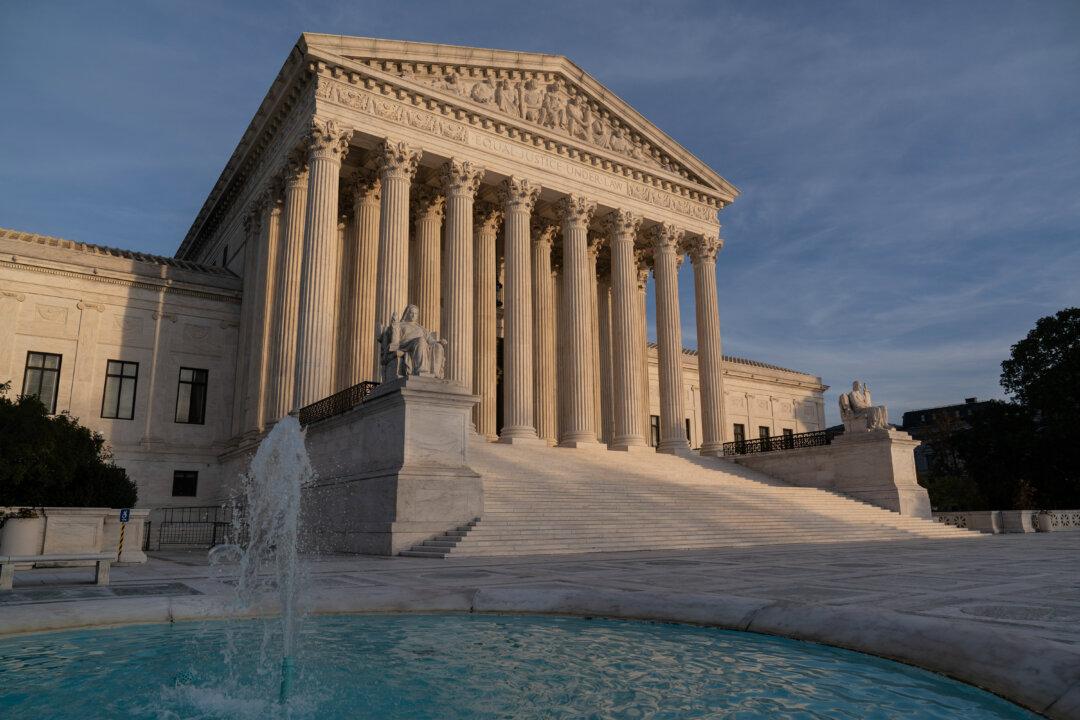The Supreme Court seemed skeptical of government arguments that the “community caretaking” exception to the Fourth Amendment’s warrant requirement should be expanded to allow police to seize guns without a warrant in a person’s home.
The case comes as President Joe Biden and congressional Democrats press for aggressive new restrictions on Second Amendment gun ownership rights, including controversial “red flag” laws, which allow gun seizures from law-abiding gun owners with limited due process, in the wake of highly publicized deadly mass shootings at a Boulder, Colorado, supermarket on March 22 and at Atlanta-area spas on March 16.





